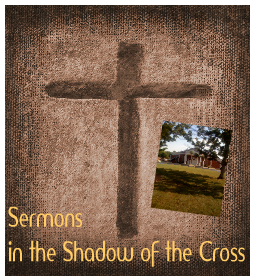What Would You Do?

What would you do if a brand-new babe in the Lord used the wrong vocabulary? I am not talking about somebody who wears the name “Christian,” but who uses profanity. I am not talking about smutty stories and/or inappropriate remarks.
In fact, “vocabulary” may not be the correct word to use. Maybe it would be more appropriate to speak of “terminology.”
You see, I am talking about somebody who has yet to learn all of the scriptural and appropriate designations for various roles in the church. Maybe he/she has yet to learn exactly and precisely how God wishes to be worshiped. Maybe this person has a lot of maturing to do in these and other very important areas.
Maybe this person just knew the following at the moment of baptism:
- This person knew that he/she was a sinner and, as such, was lost.
Maybe this person knew that baptism was needed in order to wash his/her sins away (cf. Acts 2:28; 22:16).
Added to that, this knowledge may have included the fact that baptism was how one gets “into Christ” (cf. Rom. 6:3; Gal. 3:27).
It may also be true that he/she knew that the Lord adds to the church those who are saved (Acts 2:47).
Maybe, along with those things, this person knows that the church about which all of us can read in the New Testament does not have one name that is used at the exclusion of all of the others. Maybe he/she knows that, when terms like “churches of Christ,” “church of God,” “church of the firstborn,” “the bride of Christ,” “the body of Christ,” “the house of God,” and others are used in the New Testament, they are not used to refer to various denominations or factions. Rather this person understands that each of these terms refers to the one church which Jesus promised to build (cf. Eph. 4:4; Matt. 16:18).
In short, what if the person we are considering only knew some very basic things? What if that person did not know at the time of his/her baptism all that somebody who has been a Christian for decades knows?
Again – what would you do in a situation like this?
Here are some options for you to consider:
Would you refuse to accept this person as a brother/sister in Christ because of a lack of sufficient knowledge?
If so – are you satisfied with your level of Bible knowledge? Do you know everything there is to know about the Bible, God, eternity, etc.?
Would you talk behind the person’s back?
Is this what is meant by “The Golden Rule?” (cf. Matt. 7:12)
Would you be critical of the person who baptized this individual?
If so, why were you not the one who cared enough to teach and baptize the person?
Would you tell yourself and others that this person was never really converted?
If so, does that mean that your lack of – or even erroneous – understanding of some biblical concept means that you were never converted?
Would you lovingly, patiently, and (yes) firmly follow the example of Aquila and Priscila who met with Apollos and “…explained the way of God more accurately?” (Acts 18:26)
If so, this means that you have selected the most difficult of the options here.
It also means that you have chosen the only one that…
honors God.
fulfills the “new commandment” given by our Lord in John 13:34-35.
You should remember that this commandment was that His followers were to love each other just as Christ loves us.
You should also remember that this is how His followers are to be identified.
follows a positive New Testament example.
There are negative ones, you know – like that of Diotrephes, about whom John wrote these words: “…he refuses to welcome the brothers, and also stops those who want to and puts them out of the church.” (3 John 10).
Again, may I ask…
What would you do?
Maybe a better question would be…
What have you done?
Click Here to Receive Every Article from A Legacy of Faith through Email for Free
AUTHOR: Jim Faughn
Photo by Elisey Vavulin on Unsplash


